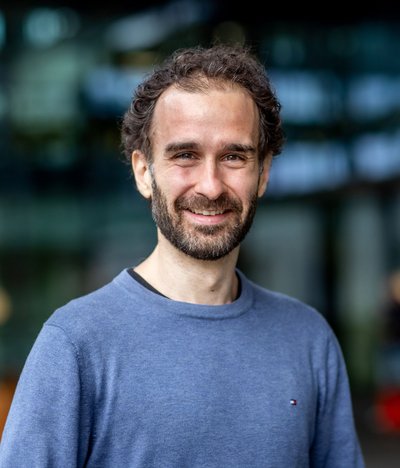Tommaso Ristori
Department / Institute

RESEARCH PROFILE
Tommaso Ristori is Assistant Professor at the TU/e, in the Biomedical Engineering Department. His research mainly focuses on investigating blood vessel formation and designing regenerative medicine approaches to induce physiological vascularization of diseased and engineered tissues. Particular attention is devoted to the mechanobiology and cell signaling underlying sprouting angiogenesis, the process leading to the formation of new blood vessels from pre-existing ones. Controlling this process is not only the target of several medical therapies, but also key to enable the development of relatively large tissue-engineered constructs ,such as tissue-engineered bones.
To unravel the mechanisms of angiogenesis, Tommaso Ristori develops multiscale computational models synergistically integrated with targeted experiments, essential to inform and validate the simulations. Moreover, strategies to better leverage on this integration between simulations and experiments are also developed.
Current projects focus on developing computational models of the (mechanosensitive) cell signaling pathways regulating angiogenesis, and on the validation of the resulting simulations via 2D and 3D cell culture experiments.
ACADEMIC BACKGROUND
After receiving a joint MSc degree in Mathematics and Mathematical Engineering from the University of Florence (Italy) and the Universidad Complutense de Madrid (Spain), Tommaso Ristori completed a PhD in Biomedical Engineering at the Eindhoven University of Technology (TU/e, the Netherlands), with a thesis focused on the computational analysis of cell-mediated collagen remodeling. His experience at the TU/e then continued as a postdoctoral researcher, in strong collaboration with the Abo Akademi of Turku, Finland. His research then focused on developing computational models of cell-cell signaling mechanosensitivity underlying blood vessel growth and remodeling. Tommaso Ristori then spent two years in the United States, at the Boston University, to perform research on angiogenesis via 2D and 3D cell culture techniques, funded by the NWO Rubicon and the Marie Sklodowska-Curie Fellowships. In March 2021, he was appointed Assistant Professor at the TU/e, in the Biomedical Engineering Department.
Recent Publications
-
Jordy G.M. van Asten,Marcos Latorre,Cansu Karakaya,Frank P.T. Baaijens,Cecilia M. Sahlgren,Tommaso Ristori,Jay D. Humphrey,Sandra Loerakker
A multiscale computational model of arterial growth and remodeling including Notch signaling
Biomechanics and Modeling in Mechanobiology (2023) -
Jordy G.M. van Asten,Tommaso Ristori,David R. Nolan,Caitríona Lally,Frank P.T. Baaijens,Cecilia M. Sahlgren,Sandra Loerakker
Computational analysis of the role of mechanosensitive Notch signaling in arterial adaptation to hypertension
Journal of the Mechanical Behavior of Biomedical Materials (2022) -
Cansu Karakaya,Mark C. van Turnhout,Valery L. Visser,Tommaso Ristori,Carlijn V.C. Bouten,Cecilia M. Sahlgren,Sandra Loerakker
Notch signaling regulates strain-mediated phenotypic switching of vascular smooth muscle cells
Frontiers in Cell and Developmental Biology (2022) -
Laura A. Tiemeijer,Tommaso Ristori,Oscar M.J.A. Stassen,Jaakko J. Ahlberg,Christopher S. Chen,Katie Bentley,Carlijn V.C. Bouten,Cecilia M. Sahlgren
Engineered patterns of Notch ligands Jag1 and Dll4 elicit differential spatial control of endothelial sprouting
iScience (2022) -
Cansu Karakaya,Jordy G.M. van Asten,Tommaso Ristori,Cecilia M. Sahlgren,Sandra Loerakker
Mechano-regulated cell-cell signaling in the context of cardiovascular tissue engineering
Biomechanics and Modeling in Mechanobiology (2022)
Current Educational Activities
Ancillary Activities
No ancillary activities